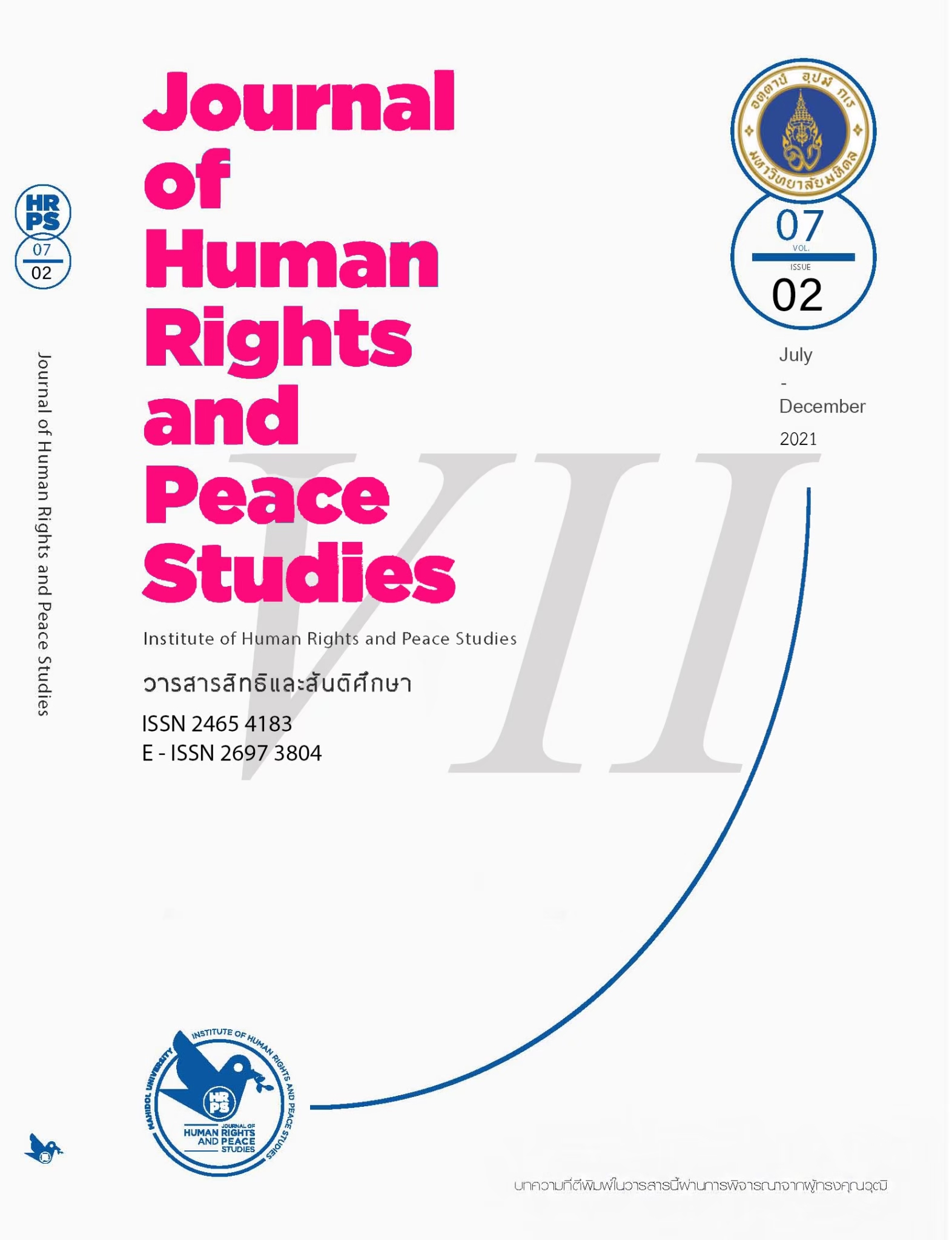An Analysis of NGOs in Southeast Asian Tiger States
Main Article Content
Abstract
This paper analyzes Singapore’s developmental state/Asian Tigers ideology impact on NGOs across the ASEAN region. The paper starts by introducing non-governmental organizations (NGOs) and the basis for why Singapore represses NGOs. It then analyzes Singapore’s continued growth from a historical, post-colonial and geopolitical perspective.Part of the country’s growth has been attributed to its primary focus on economic growth and strict regulation of various aspects of the country’s governance, especially of civil societies or NGOs. This paper then explores paper analyzes the impact of Singapore’s action and influence in the ASEAN(Association of Southeast Asian Nations)region by comparing Thailand, Malaysia, and Vietnam to Singapore and examining how Singapore’s developmental ideology is encouraging Myanmar to silence NGOs as well. With this analysis, the paper argues how Singapore’s future developmental ideology has influenced the ASEAN region, especially Myanmar and Vietnam, to emulate its strategy and take guidance from the successful developmental state and subsequently analyzes the impact of this agenda.
Article Details

This work is licensed under a Creative Commons Attribution-NonCommercial-NoDerivatives 4.0 International License.
The views, opinions, and pictures expressed in this journal are those of the authors and do not necessarily reflect the opinions and viewpoints of the editor and the editorial board. All rights are reserved by the authors and the Institute of Human Rights and Peace Studies of Mahidol University. No part of this journal may be reproduced, stored in a retrieval system, or transmitted in any form or by any means without the prior permission in writing from the journal’s editor, or as expressly permitted by law, or under terms agreed with the appropriate reprographics rights organization. Non-commercial use of information in this journal must be properly referenced.
References
Chevalier-Watts, J. (2018). Charity law: International perspectives. Routledge.
Chia, Y.T. (2015). Education, culture and the Singapore developmental state: World-Soul lost and regained?. Palgrave Macmillan.
Chong, T. (2005). Civil society in Singapore: Popular discourses and concepts. Journal of Social Issues in Southeast Asia, 20(2), 273–301.
Daly, P. T., & Feener, R. M.(Eds.).(2016). Rebuilding Asia following natural disasters: Approaches to reconstruction in the Asia-Pacific region. Cambridge University Press. https://doi.org/10.1017/CBO9781139683548
Douglass, M. (2005). Local city, capital city or world city? Civil society, the (Post-) developmental. state and the globalization of urban space in Pacific Asia. Pacific Affairs, 78(4), 543–558. https://doi.org/10.5509/2005784543
Francesch, M. (2005). A “Disciplined Governance” Approach to Government-NGOs Relations: The Structures and Dynamics of Environmental Politics and Management in Singapore[Doctoral dissertation,University of Hong Kong]. http://dx.doi.org/10.5353/th_b3146358
Gainsborough, M. (2009). The (neglected) statist bias and the developmental state: The case of Singapore andVietnam.ThirdWorldQuarterly,30(7),1317–1328. https://doi.org/10.1080/01436590903134957
Ginsburg, T., & Chen, A. H.Y. (Eds.).(2009). Administrative law and governance in Asia: Comparative perspectives. Routledge.
Haley, J. O., & Takenaka, T.(Eds.)(2014). Legal innovations in Asia: Judicial lawmaking and the influence of comparative law. Edward Elgar.
Harding, A. (2018). Multi-Level, recursive law and development: Singapore legal role in ASEAN. Asian Journal of Law and Society, 5(2), 251–269. https://doi.org/10.1017/als.2018.33
Kumar, C. R., & Srivastava, D. K. (2006). Human rights and development: Law, policy and governance. LexisNexis.
Lee, H. G. (Ed.). (2004). Civil society in Southeast Asia. Institute of Southeast Asian Studies.
Li-ann, T. (2017). “Pragmatism and realism do not mean abdication”: A critical and empirical inquiry into Singapore’s engagement with international human rights law. In T. Ginsburg & A. H. Y. Chen(Eds.), Public law in East Asia(1st ed., pp. 439–489). Routledge.
McGregor-Lowndes, M. (2018). An overview of the not-for-profitsector. InM.Harding(Ed.), Researchhandbookonnot-for-profitlaw(pp.131–152).EdwardElgar. https://doi.org/10.4337/9781785369995.00013
Morris,P. (1996).Asia’s Four Little Tigers: Acomparison of the roleof education. intheirdevelopment.ComparativeEducation,32(1),95–110. https://doi.org/10.1080/03050069628948
O’Halloran, K., McGregor-Lowndes, M., & Simon, K. W. (2010). Charity law & social policy: National and international perspectives on the functions of the law relating to charities. Springer.
Pereira, A. A. (2008). Whither the developmental state? Explaining Singapore’scontinueddevelopmentalism.ThirdWorldQuarterly,29(6),1189–1203. https://doi.org/10.1080/01436590802201162
Prateapusanond, A. (2017). Management of NGO/INGO in Thailand: Development, practices, concerns and recommendation. National Defence Studies Institute Journal, 8(3), 24-29. https://so04.tci-thaijo.org/index.php/ndsijournal/article/view/107645
Schak, D. C., & Hudson, W. (2003). Civil society in Asia.Ashgate.
Shigetomi, S.(Ed.).(2002). The state and NGOs: Perspective from Asia. Institute of Southeast Asian Studies.
Simon, K. W. (2013). Civil society in China: The legal framework from ancient times to the “new reform era”. Oxford University Press.
Tan, H.-L. (2011). TheASEAN Intergovernmental Commission on Human Rights: InstitutionalisinghumanrightsinSoutheastAsia.CambridgeUniversityPress. https://doi.org/10.1017/CBO9780511790386
Weller, R. P.(Ed.).(2004). Civil life, globalizationand political change in Asia: Organizing between family and state(1st ed.). Routledge. https://doi.org/10.4324/9780203330890
Yuen, N.C., Freeman, N. J., & Huynh, F. C. H. (Eds.). (1996). State-owned enterprise reform in Vietnam: Lessons from Asia. Institute of Southeast Asian Studies.


